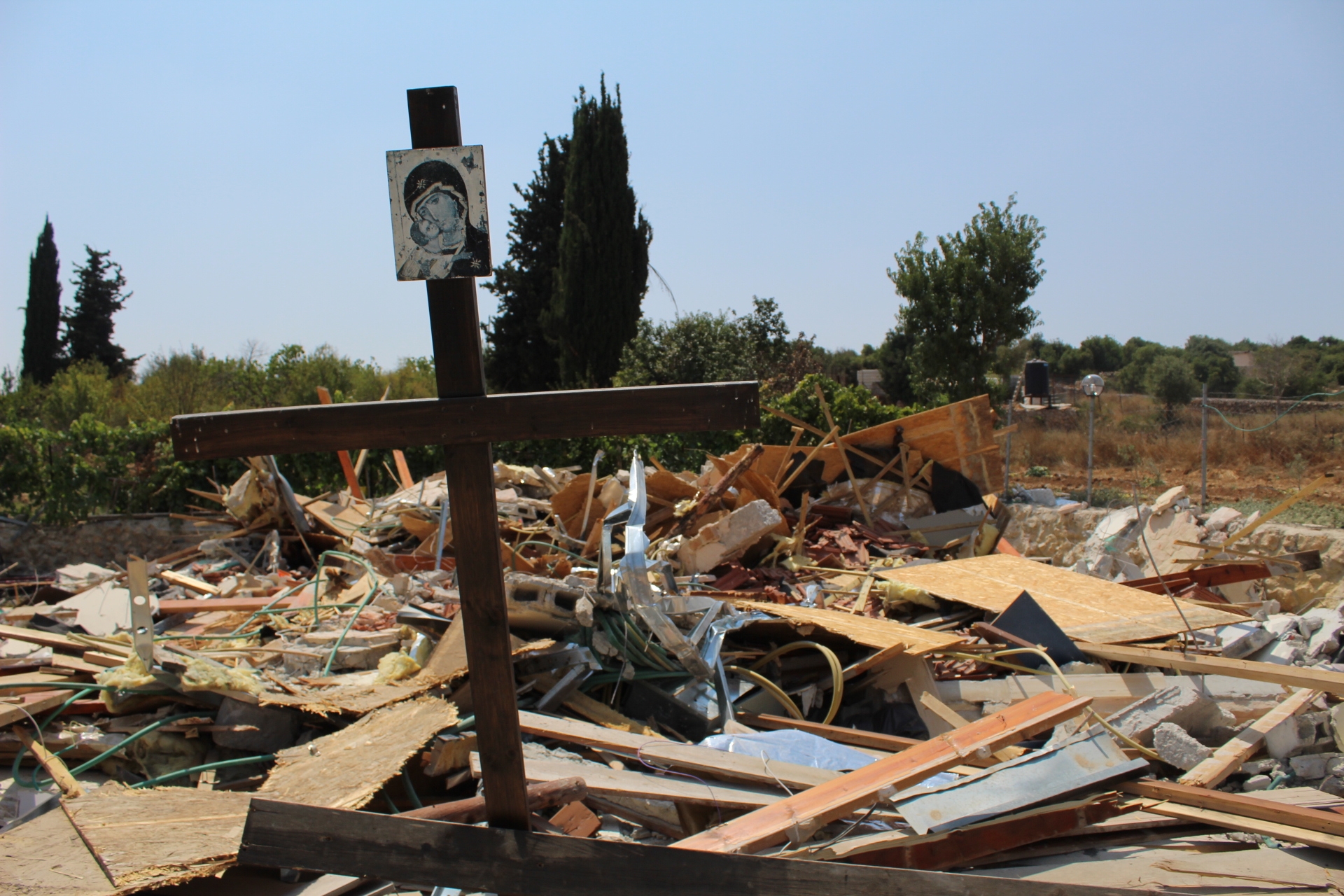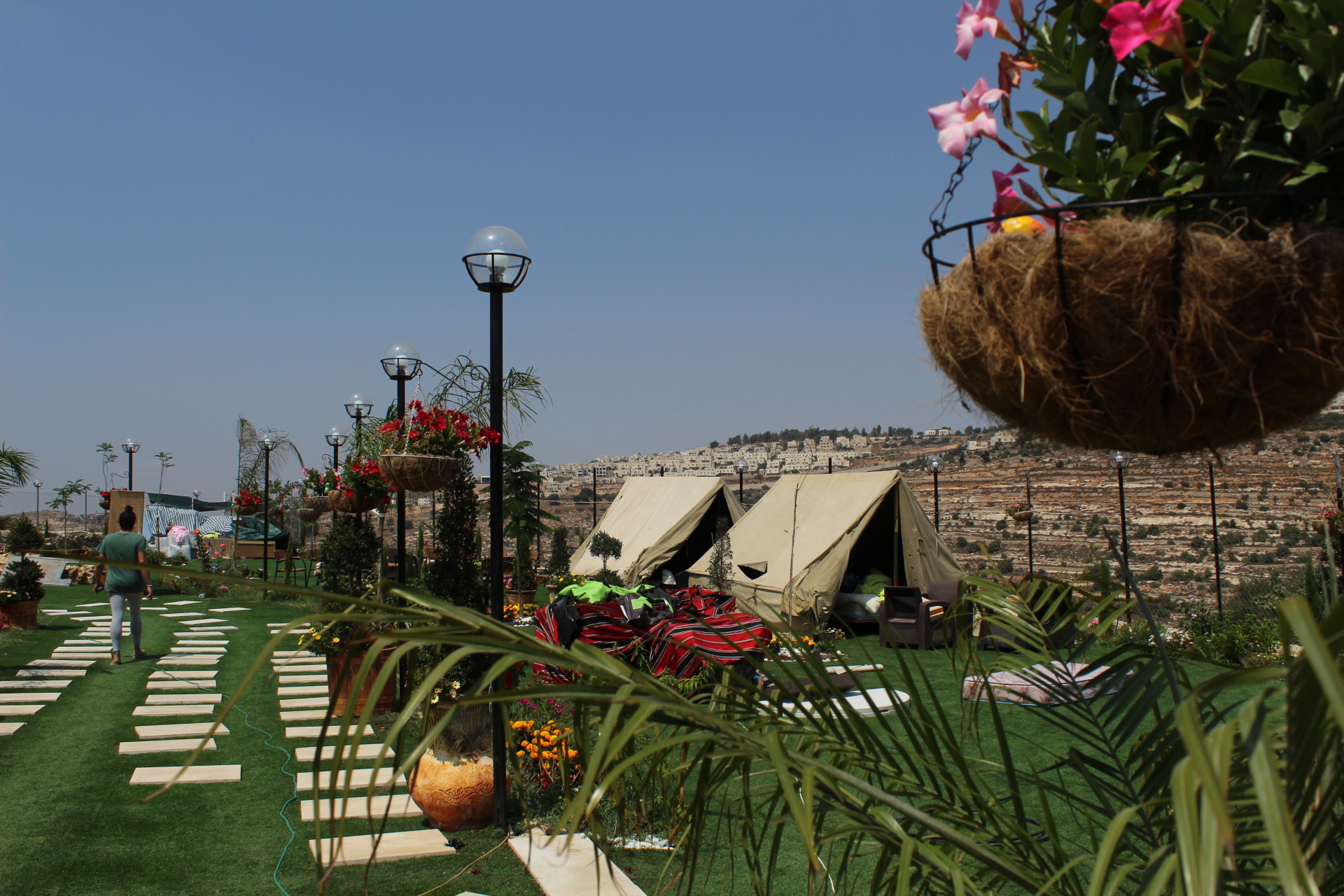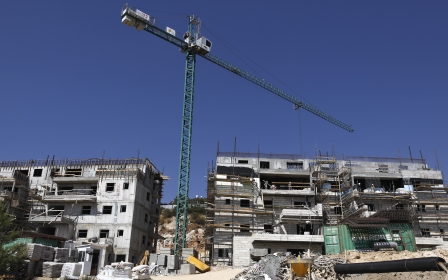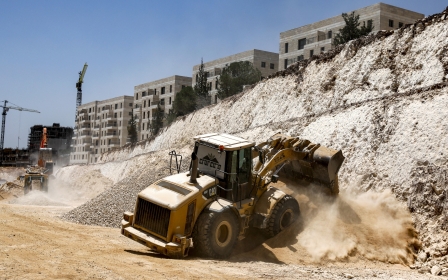'We are not defeated': Palestinian family defiant after Israel demolishes restaurant

Around 9:30 on Monday morning, an all-too-familiar scene for Palestinians unfolded on a hilltop in al-Makhrour valley, near the Bethlehem-area town of Beit Jala.
The Israeli military was demolishing the home and the restaurant of the Palestinian Qaisyeh family.
As usual, the military said that the demolition order was given due to the lack of a proper construction permit, but the Qaisyeh family says they have been battling settler organisations over the ownership of the land itself.
'They want all this land empty and for settlers'
- Hasan Breijeh, activist
“They have a project, the 'Greater Jerusalem' plan, and as you can see in front of you, they are working on this mountain,” Hasan Breijeh, a Palestinian activist with the Colonization and Wall Resistance Commission, said as he pointed at bulldozers on the hilltop across from the al-Makhrour restaurant.
The bulldozers are apparently constructing a new tunnel leading to Jerusalem, with the intent of connecting the holy city with the illegal Gush Etzion and Har Gilo settlements.
“They want all this land empty and for settlers,” Breijeh told Middle East Eye.
Legal tussle
Ramzi Qaisyeh, the owner of the five dunams of land (5,000 square metres), built the al-Makhrour restaurant in 2005. After the business proved successful, Qaisyeh moved his family into a nearby house that he built himself in 2010.
Made of mainly wood and plastic, with the kitchen built in an old mudbrick house predating 1967, the family said the restaurant never needed a building permit because it was there before the formal occupation began.
However, the Israeli military's Coordinator of Government Activities in the Territories (COGAT) insisted permits were necessary.
"We emphasise that enforcement was carried out under due authority and procedures," COGAT told MEE.
This is not the first time the restaurant has been dismantled, first in 2012 and again in 2013 after it was rebuilt. In 2014, Ramzi Qaisyeh built the restaurant for the third time and applied for the proper authorisation for the constructed house.
“We had the application for the house to get it authorised since 2014,” his daughter, Alice, explained.
“But in 2017, Haminuta came and said the land is theirs. [But the issue] was never about the land, it was about the building,” the 25-year-old told MEE, referring to the prior demolition orders.
Haminuta is a subsidiary land-purchasing company under Keren Kayemeth LeIsrael-Jewish National Fund (KKL-JNF), a century-old organisation created to help the Zionist cause by purchasing Palestinian land.
“There is no need for [JNF] now that the state of Israel is established,” Hagit Ofran, from the Peace Now anti-occupation group, told MEE.
“Haminuta claims that they bought the land [of the Qaisyeh family] back in 1969 and the court agrees,” Ofran said. “But the land was not registered in the al-Makhrour area,” which opens way to mistakes or even forgery.
“Theoretically,” she said, “even if Haminuta didn’t interfere, the demolition would have still happened because the order came from the civil administration since there was no building permit.
“But the case received urgency and pressure because of the JNF.”
Strategic land
Ofran said the hill upon which the al-Makhrour restaurant sits is strategic in its way of connecting Israeli settlements with Jerusalem and disconnecting Palestinian villages from the city of Bethlehem, thus challenging the viability of a future Palestinian state.
“If they claim that this is their land, they would kick us out. They would not let us live there for one second,” Alice Qaisyeh said.
After the demolition, the family stayed on their land. With their personal belongings strewn about the property, the family has now set up tents and decided to stay put.
“This is a way of making people just move from their lands. To give up. They demolish… they make us tired and think they can make us leave,” she said.
'This is a way of making people just move from their lands. To give up'
- Alice Qaisyeh
According to Breijeh and Alice Qaisyeh, the family’s lawyer managed to acquire a notice from the Israeli High Court on Monday morning, calling for a delay in the demolition. But when the lawyer asked the main military commander on the scene to wait to see the document, the commander quickly ordered the demolition to continue anyway.
“If he saw the paper, maybe we could punish them in the court,” Breijeh said. “But he wanted to demolish the house. He could say he didn’t see or he didn’t hear [about the court order].”
Alice said her family remains defiant.
“Of course I am so sad about my home because of all the memories,” she said. “But we are not defeated.”
The family, along with community support, has plans to rebuild its home and business once again.
Home demolitions are illegal under international law in occupied territory, referring to the fourth Geneva Convention and the responsibility of the occupying power to protect the existing population and its inability to change facts on the ground. This applies to the building of settlements and roadways as well.
Middle East Eye propose une couverture et une analyse indépendantes et incomparables du Moyen-Orient, de l’Afrique du Nord et d’autres régions du monde. Pour en savoir plus sur la reprise de ce contenu et les frais qui s’appliquent, veuillez remplir ce formulaire [en anglais]. Pour en savoir plus sur MEE, cliquez ici [en anglais].






